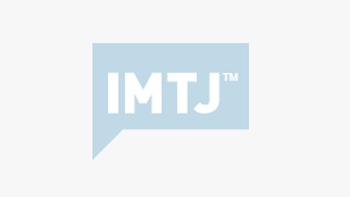The document presents in 21 points, the main aspects to look out for when seeking to apply patient’s rights to cross border healthcare. For example, issues such as level of reimbursement, need for upfront payment, need for prior authorisation and reasons for refusal. It answers frequently asked questions such as: “Can I seek healthcare abroad if the treatment is not available in my country?” “Where can we find information on care provided in other Member States?” or “Can we ask for travel and accommodation expenses to be also reimbursed?”
The Directive on Patients’ Rights for Cross-Border Care was officially adopted in March 2011. It aims to help patients exercise their right to reimbursement for healthcare received in another EU country; provide assurance about safety and quality of cross-border healthcare and establish formal cooperation between health systems. This is especially important for rare disease patients who cannot find the right care locally or need to access a centre of expertise in another country.
Member States have until October 2013 to transpose the Directive into national law and adopt appropriate measures. During this process, patients and their organisations have an opportunity to assert the right of every EU citizen to healthcare in another Member State and to make their voices heard when implementing this legislation.
At a recent EURORDIS membership meeting in Brussels, patient advocates discussed why and how a patient organisation should influence the process taking the case of cross border healthcare between Belgium and the Netherlands and the case of Luxembourg.
Yann Le Cam of EURORDIS highlights how a new directive on cross-border healthcare will foster patient mobility and greater cooperation on rare diseases, “The directive clarifies the rules for patients to access healthcare abroad, and is especially important for rare disease patients and their families who cannot find diagnosis locally or need to access a centre of expertise based in another country. According to EU statistics, the demand for cross-border healthcare only affects approximately 1% of public spending on health, while the EurordisCare survey records that 2% of families affected by rare diseases have to seek diagnosis abroad.”
John Dalli, European Commissioner for Health and Consumer Policy adds, ‘the directive will help patients who need specialised treatment, for example those who are seeking a diagnosis or treatment for a rare disease. Some rare diseases are not even recognised in some countries, let alone treated. Small countries often cannot offer the same medical services as bigger nations.” Nathalie Chaze of the European Commissions adds, “The basis of this directive is to reduce inequality, to assert the right to be treated in another member state and be reimbursed for it. The directive should benefit rare disease patients who seek diagnosis, treatment or care that do not exist in their state.”
Patients seeking healthcare in another country that involves an overnight hospital stay or is highly specialised and costly will need to ask for permission from their national health authority in charge of reimbursement. The great step forward contained in this directive is that this prior authorisation can no longer be denied or postponed indefinitely, which often happens due to low knowledge and expertise on rare diseases by the authorities in charge of granting the authorisation. The good news is that travel for treatment of rare diseases not provided for in one’s country of affiliation cannot be refused.
While the directive applies broadly to all diseases in general, it recognises rare diseases for their specificities (rarity of expertise and patients, scarce knowledge, and limited therapeutic interventions) that require particular measures to organise and disseminate this expertise at the European level – through the European Reference Network – and to support easier patient mobility across the EU to access quality diagnosis and care. These new avenues are extremely important for patients and their families. Article 12 of the directive states that: ‘The Commission shall support member states in the development of European Reference Networks between healthcare providers and centres of expertise in the member states, in particular in the area of rare diseases.’








 ©2024 All rights reserved LaingBuisson
©2024 All rights reserved LaingBuisson 


